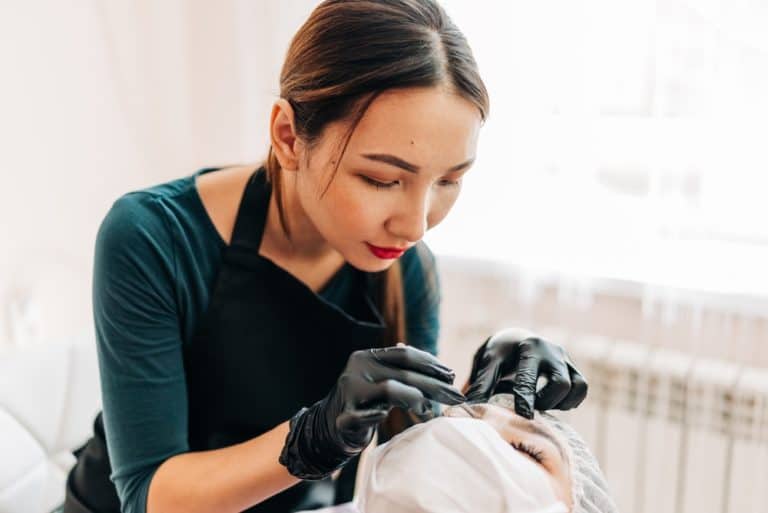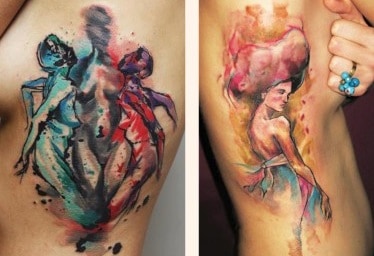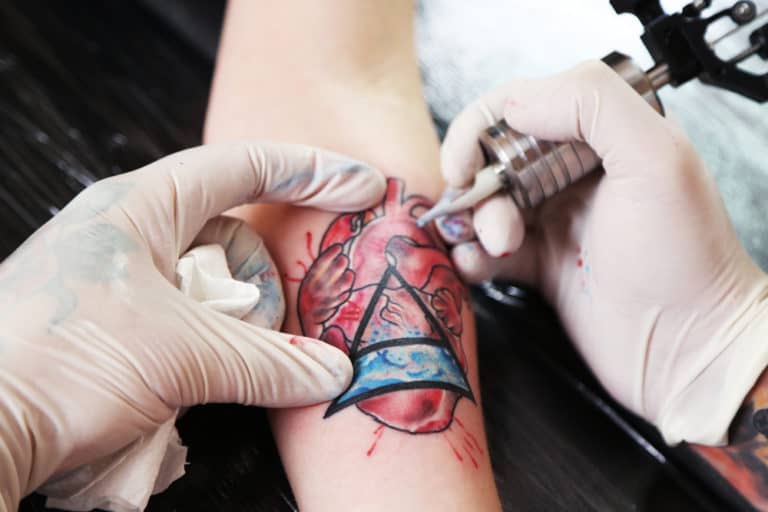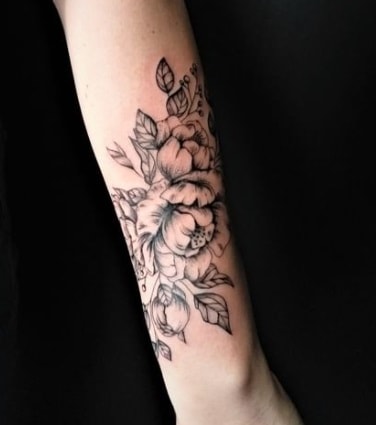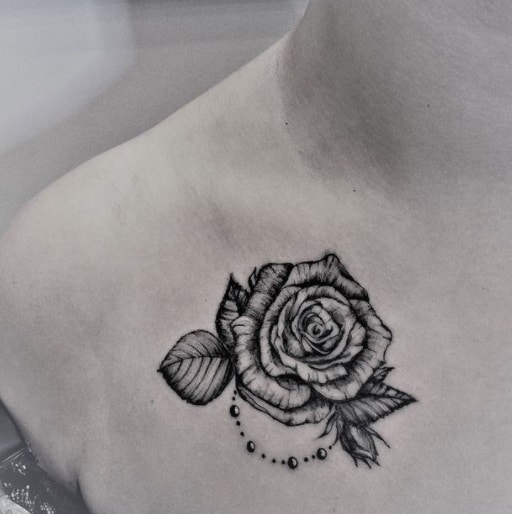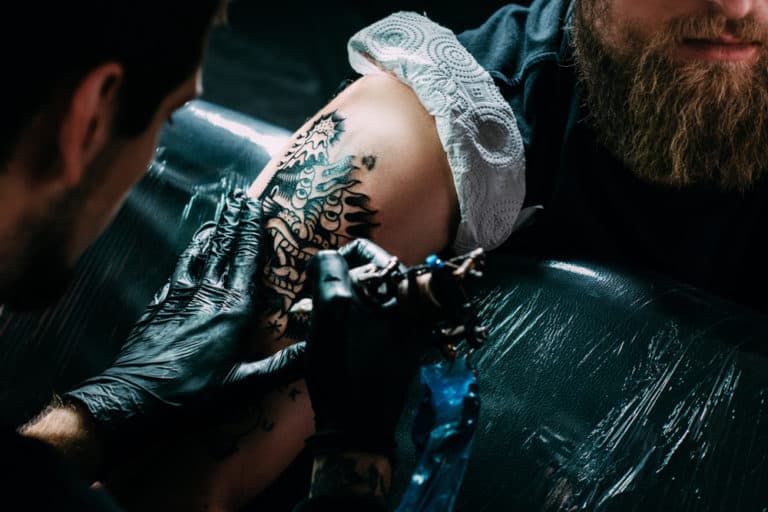This Is Why Tattoo Guns Are Covered In Plastic While In Use
You have a brand new tattoo, and one of the things you noticed during the whole experience is that the tattoo gun used by the tattoo artist, along with all the other equipment in the shop, was covered in plastic wrap. Why do tattoo artists do this, and is it necessary?
Plastic wrap is used to cover tattoo guns to keep the guns sterile and to avoid cross-contamination between each client. There are a few alternatives that can be used in place of the plastic wrap, but it is all to ensure the safety of the clients and tattoo artists alike.
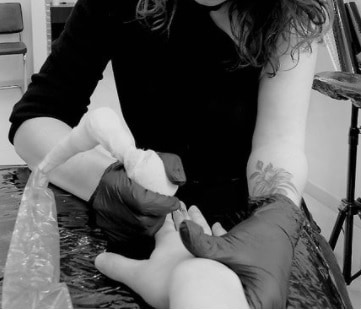
Tattoo artists cover more than just their machines in plastic wrap, and this plastic wrap is replaced after every client. Should it be considered a possible red flag if the tattoo artist fails to comply with this necessary industry standard?
Why Is A Plastic Wrap Used On Tattoo Equipment?
The tattoo artist covers a multitude of equipment in plastic wrap. The bench is wrapped, the machine is wrapped, the tattoo workstation is wrapped. Even the spray bottles that they use to disinfect and clean the equipment and your skin with are wrapped, and eventually, the client’s tattoo will be wrapped too. Why is this?
Everything is wrapped to make sure that whatever the client comes into contact with during the tattooing procedure is sterile. This also ensures that everything the tattoo artist may touch during the tattoo process is clean to not contaminate anything with bacteria. This is a precautionary measure to prevent cross-contamination between two clients and prevent the spreading of germs and disease.
Plastic wrap is used for this process as it is easy to work with, and it sticks easily to the surfaces that need to be protected. The ease of use is especially handy, as tattoo artists need to replace the plastic wrap in between every client session, and you do not want this process to take too long and keep the next client waiting for an extended period of time.
Plastic wrap is also airtight; this ensures that no bacteria can easily get onto the equipment or the client’s skin through the plastic wrap. This allows for the client’s peace of mind in that they will not be exposed to any bacteria that may be harmful and could be transferred from other clients.
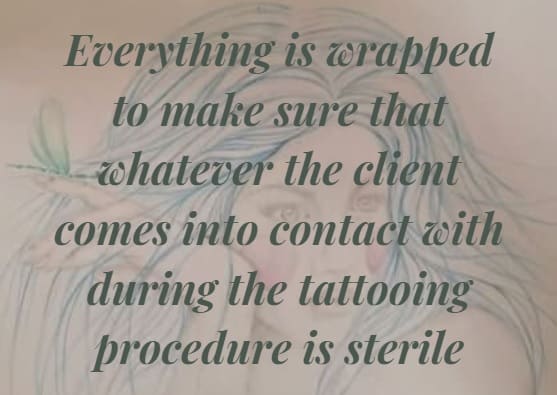
This also allows the tattoo artist to be sure that the new tattoo will not get an infection caused by any bacteria that is present while the tattoo is being applied to the client’s skin.
The plastic wrap is especially important on the tattoo machine as this is the piece of equipment that comes into direct contact with each client’s skin.
The tattoo artist may rest the cord of the machine or a part of the gun itself on the client while the client is getting tattooed to stabilize their hand or in order to extend the tattoo gun to a hard-to-reach area of the tattoo.
This should by no means transfer any bacteria to the client as long as the equipment is thoroughly wrapped in plastic and is disinfected with a sterilizing wipe or spray.
To ensure that the client’s bodily fluids from the fresh tattoo do not come into direct contact with the tattoo gun itself and cause contamination of any kind, the tattoo gun needs to be completely wrapped in this way with the plastic to remain sterile to keep all clients and the tattoo artist safe.
What Plastic Is Used To Wrap The Tattoo Gun
The plastic wrap may look familiar to you, but is there a specific plastic that tattoo artists use to wrap their equipment with?
The plastic covering that is used to wrap the tattoo gun, and all the other tattooing equipment is called saran wrap. This saran wrap is not the same size or durability as the saran wrap that you would use in your kitchen at home.
This saran wrap is specially made with tattoo artists in mind and is bought from specialist tattoo supply stores.
This saran wrap is quite durable as it needs to stay wrapped and intact on the tattooing equipment for hours. Depending on how long each tattoo takes to create will determine how long the saran wrap will be on each piece of equipment.
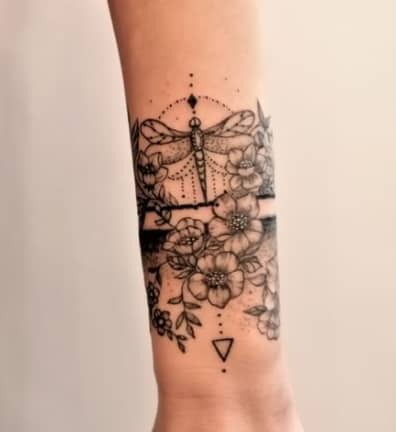
The tattoo artist will need to keep a close check on the saran wrap to make sure that no holes appear in it in order to not expose the tattoo gun and equipment to bacteria and any possible cross-contamination.
Saran wrap does not absorb any bodily fluids that come from a client’s fresh tattoo. This keeps the tattoo gun and all the other tattooing equipment sterile for the duration of the tattooing process.
Alternatives to Plastic Wrap For Tattoo Gun
Your tattoo artist may not use plastic saran wrap; however, they still wrap their tattoo guns with something else to protect them from bacteria. Here are a few of the alternatives that your tattoo artist may use to keep their tattoo gun and equipment sterile.
Your tattoo artist may use a plastic disposable tattoo gun cover bag. These are a blue-colored plastic bag specifically made for tattoo guns. These are easy to use and can be effortlessly put on to and removed from the tattoo gun.
There are disposable plastic cover bags just like the above bags that are made for all the different parts of the tattoo machine. From the cord to the power supply, this ensures that every part of the machine is kept clean of bacteria and bodily fluids from clients.
Tattoo artists may also use sterilizing wipes or sprays in conjunction with plastic wraps to ensure that all germs and bacteria are killed and wiped away before wrapping the tattoo gun and other equipment before each client is tattooed.
What If My Tattoo Artist Doesn’t Wrap His Gun?
Should you be concerned if you see that your tattoo artist does not use plastic wrap or disposable plastic cover bags to wrap his tattoo gun and equipment?
This seems like it should perhaps start to raise some red flags about your tattoo artist, however, do not judge just yet, as this requires a conversation with your tattoo artist to see his reasoning behind this decision.
Some tattoo artists will only wrap the cord of the tattoo gun and not the tattoo gun itself as they may have another effective way to disinfect the tattoo gun in between clients. A few tattoo artists rely on what is called an autoclave to sterilize their tattoo guns.
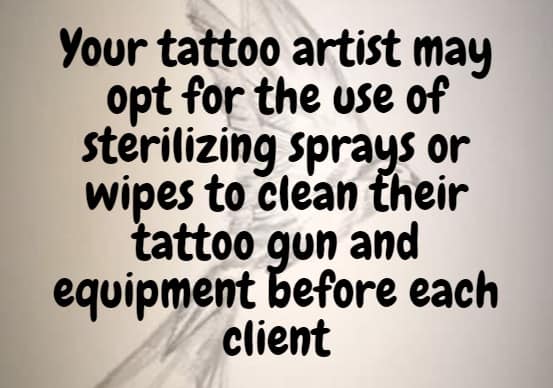
An autoclave is a machine that heats up and uses pressurized steam to clean the equipment that is placed inside it. The downside to this machine is that the shop may also use the autoclave to clean other equipment that is in the shop, and it does take around twenty minutes per cycle, which could keep clients waiting.
However, the autoclave will do the job of serializing the tattoo gun, as it kills all the possible bacteria that could be on the tattoo gun, so there is no need to worry about cross-contamination.
Otherwise, your tattoo artist may opt for the use of sterilizing sprays or wipes to clean their tattoo gun and equipment before each client.
As long as the alcohol level of these sprays and wipes are high enough and your tattoo artist is diligent enough, then this way of sterilizing the equipment is perfectly viable and safe.
However, if the tattoo artist does not wrap anything in the shop whatsoever, including the bench that the clients sit on while they are receiving their tattoo, then this may be a warning sign not to use that particular tattoo artist as they do not follow proper sanitary protocols to keep you and themselves safe from bacteria and cross-contamination.
Conclusion
Tattoo guns and all equipment are carefully wrapped in plastic for the safety of the clients and the tattoo artists. The plastic wrap keeps everything sanitary and clean so as to not allow for any cross-contamination of any kind between clients.
The plastic wrap helps with keeping bacteria away from the client’s new tattoo during the tattooing procedure, ensuring that no infection is caused from the tattoo artist’s side.

